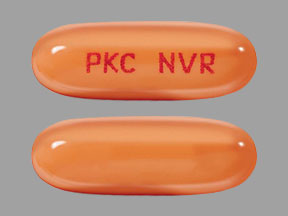Midostaurin Disease Interactions
There are 2 disease interactions with midostaurin.
FLT3 kinase inhibitors (applies to midostaurin) renal/liver dysfunction
Moderate Potential Hazard, Moderate plausibility. Applicable conditions: Renal Dysfunction, Liver Disease
Midostaurin and quizartinib should be used with caution in patients with severe hepatic or severe renal dysfunction as the pharmacokinetics of these agents have not been studied in these patients. No dosage adjustments are recommended in patients with mild or moderate hepatic or renal dysfunction.
Multikinase inhibitors (applies to midostaurin) lung toxicity
Moderate Potential Hazard, Moderate plausibility. Applicable conditions: Interstitial Pneumonitis, Pulmonary Impairment
The use of certain multikinase inhibitors has been associated with pulmonary toxicity. Serious cases of interstitial lung disease (ILD), including fatal cases and interstitial pneumonitis or pulmonary fibrosis have been reported. Caution is recommended when using these agents in patients with a history of interstitial pneumonitis or pulmonary fibrosis or those patients presenting with acute onset of new or progressive unexplained pulmonary symptoms such as dyspnea, cough, and fever pending diagnostic evaluation. If ILD is confirmed, these agents should be permanently discontinued and appropriate measures should be instituted. Treatment should be immediately withheld in patients diagnosed with ILD/pneumonitis and permanently discontinued if no other potential causes of ILD/pneumonitis have been identified.
Switch to professional interaction data
Midostaurin drug interactions
There are 662 drug interactions with midostaurin.
Midostaurin alcohol/food interactions
There is 1 alcohol/food interaction with midostaurin.
More about midostaurin
- midostaurin consumer information
- Check interactions
- Compare alternatives
- Reviews (5)
- Side effects
- Dosage information
- During pregnancy
- Drug class: multikinase inhibitors
- Breastfeeding
- En español
Related treatment guides
Drug Interaction Classification
| Highly clinically significant. Avoid combinations; the risk of the interaction outweighs the benefit. | |
| Moderately clinically significant. Usually avoid combinations; use it only under special circumstances. | |
| Minimally clinically significant. Minimize risk; assess risk and consider an alternative drug, take steps to circumvent the interaction risk and/or institute a monitoring plan. | |
| No interaction information available. |
See also:
Further information
Always consult your healthcare provider to ensure the information displayed on this page applies to your personal circumstances.


